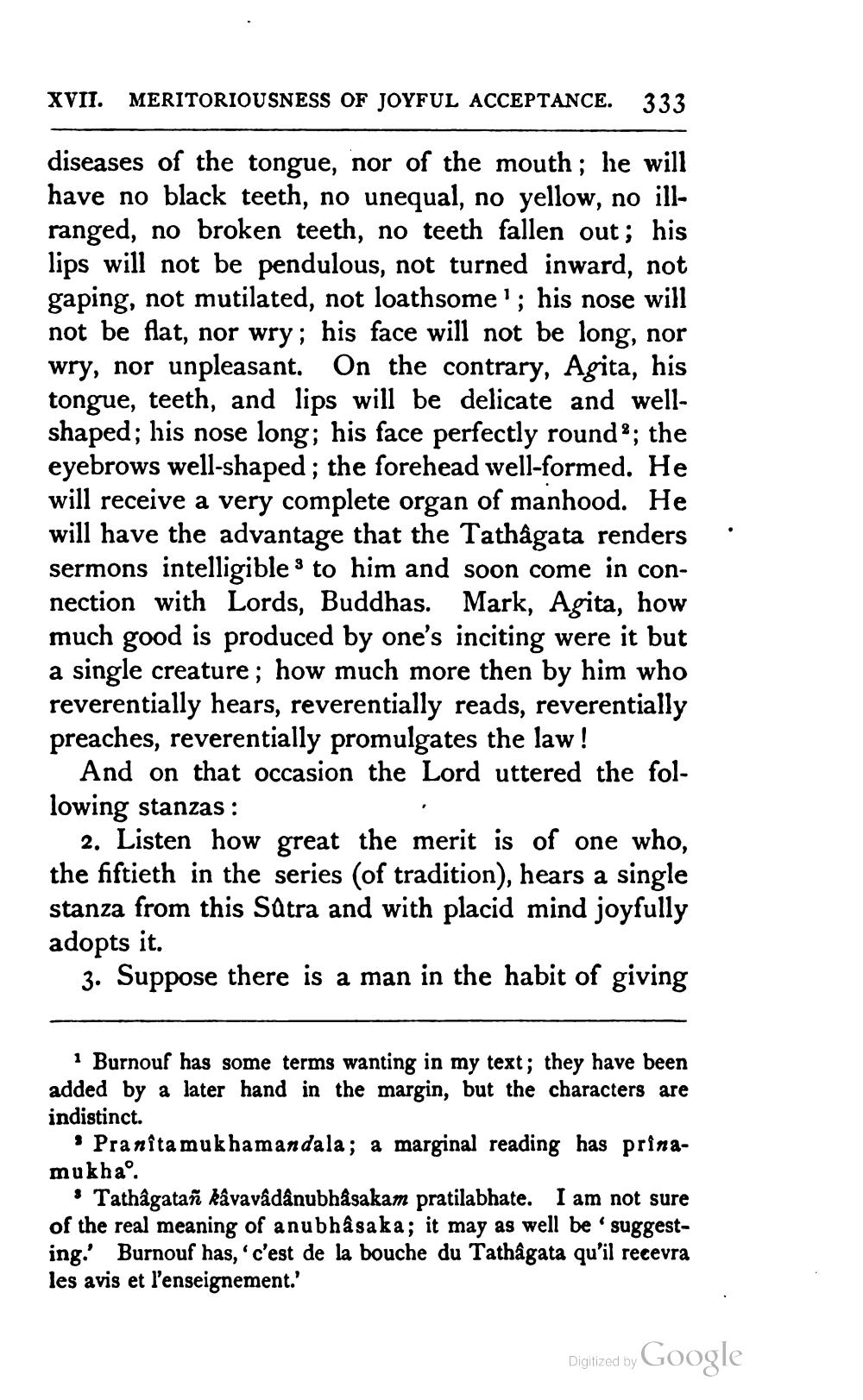________________
XVII. MERITORIOUSNESS OF JOYFUL ACCEPTANCE. 333
diseases of the tongue, nor of the mouth; he will have no black teeth, no unequal, no yellow, no illranged, no broken teeth, no teeth fallen out; his lips will not be pendulous, not turned inward, not gaping, not mutilated, not loathsome'; his nose will not be flat, nor wry; his face will not be long, nor wry, nor unpleasant. On the contrary, Agita, his tongue, teeth, and lips will be delicate and wellshaped; his nose long; his face perfectly round; the eyebrows well-shaped; the forehead well-formed. He will receive a very complete organ of manhood. He will have the advantage that the Tathagata renders sermons intelligible to him and soon come in connection with Lords, Buddhas. Mark, Agita, how much good is produced by one's inciting were it but a single creature; how much more then by him who reverentially hears, reverentially reads, reverentially preaches, reverentially promulgates the law!
And on that occasion the Lord uttered the following stanzas :
2. Listen how great the merit is of one who, the fiftieth in the series (of tradition), hears a single stanza from this Satra and with placid mind joyfully adopts it.
3. Suppose there is a man in the habit of giving
· Burnouf has some terms wanting in my text; they have been added by a later hand in the margin, but the characters are indistinct.
• Pranîta mukhamandala; a marginal reading has prinamukhao.
. Tathagatañ kâvavâdânubhâsakam pratilabhate. I am not sure of the real meaning of anubhâsaka; it may as well be suggesting.' Burnouf has, c'est de la bouche du Tathagata qu'il recevra les avis et l'enseignement.'
Digitized by Google




